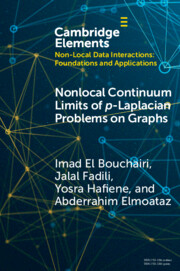1 results

Nonlocal Continuum Limits of p-Laplacian Problems on Graphs
-
- Published online:
- 13 April 2023
- Print publication:
- 11 May 2023
-
- Element
- Export citation

